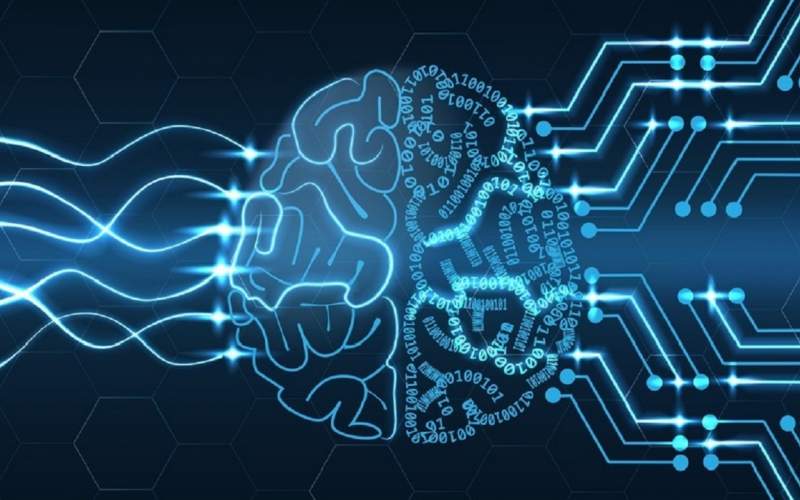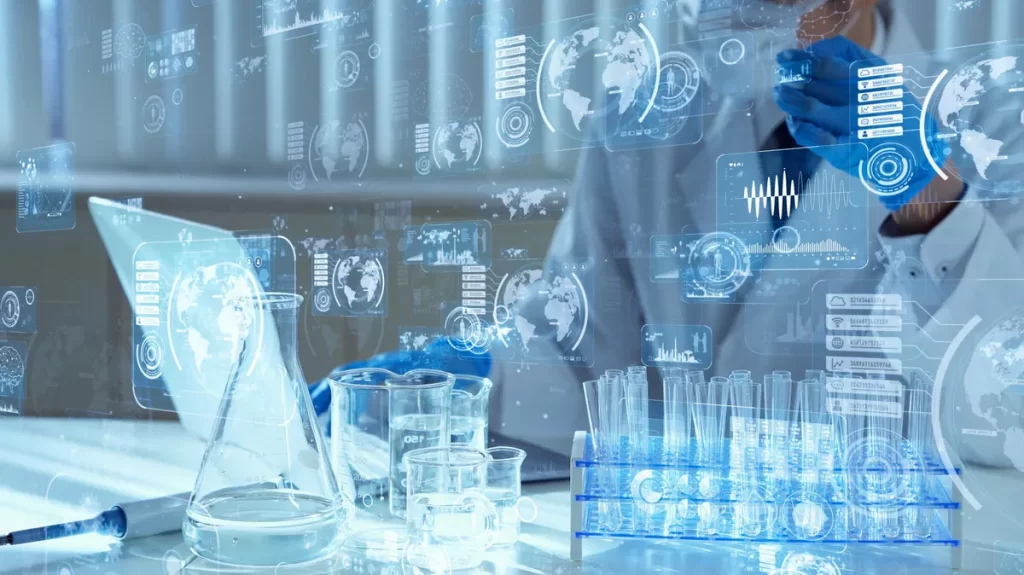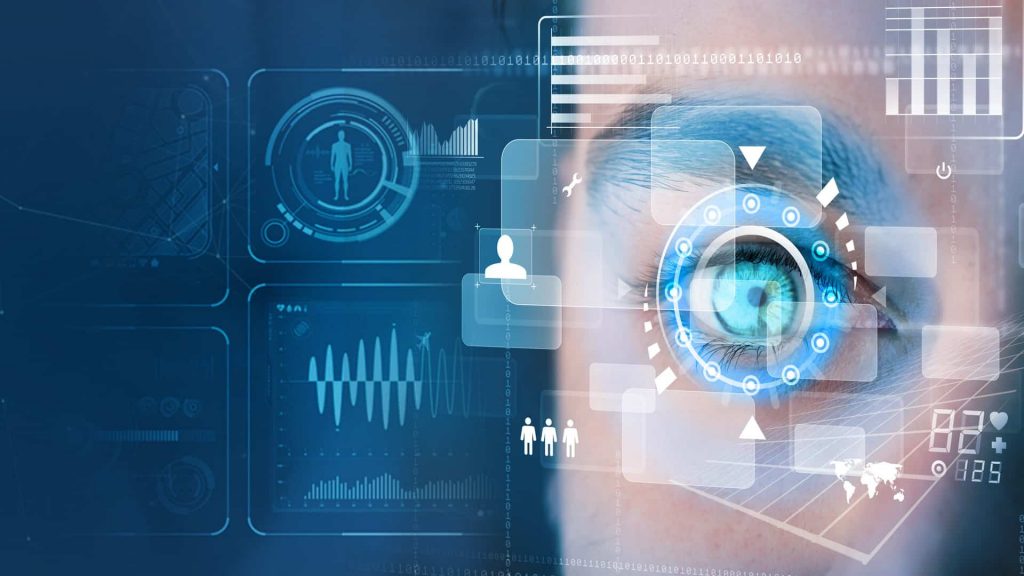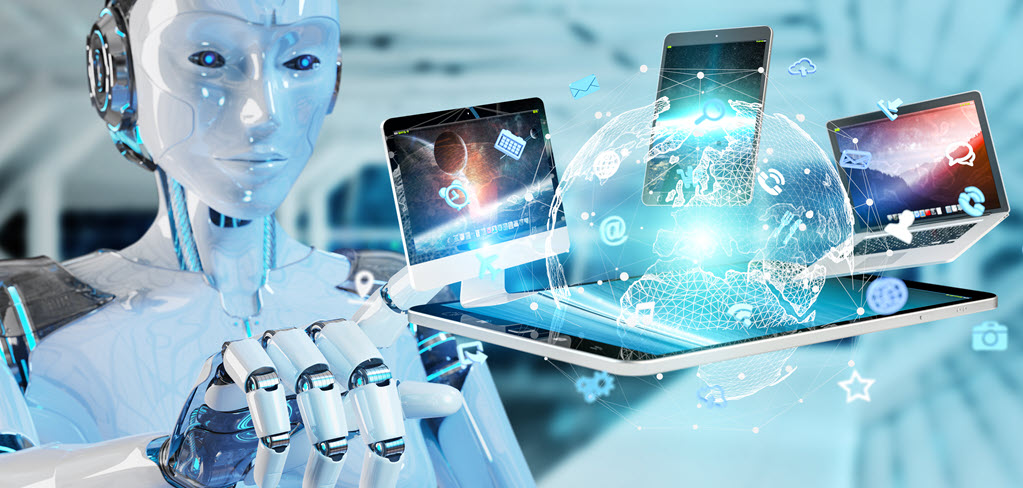Future of PCs
What is the future of personal computers such as laptops and…?
The future of personal computers, including laptops and desktops, will likely involve continued advances in performance, portability, and connectivity.
One trend in recent years has been the increasing use of mobile devices, such as smartphones and tablets, for computing tasks that were previously the domain of desktop and laptop computers. However, many jobs and applications still require the power and flexibility of a full-fledged personal computer.
In terms of performance, we can expect personal computers to become faster and more potent as processors and other components continue to improve. This will enable more demanding applications, such as high-end gaming and virtual reality, to run smoothly on personal computers.
Portability will also remain essential, with laptops becoming thinner, lighter, and more versatile. 2-in-1 devices that can function as both a laptop and a tablet are increasingly popular, and we may see further innovations in this area.
Connectivity will also be a key development area, with personal computers becoming more tightly integrated with other devices and services. For example, we may see greater integration with smart home devices and the Internet of Things and more seamless integration with cloud services and online applications.
Overall, while mobile devices will continue to play an important role in our computing lives, personal computers will likely remain an essential tool for many people and will continue to evolve and improve.

Could personal computers be brilliant in the future?
It is possible that personal computers could become fully intelligent in the future. Still, it would depend on how we define “intelligence” and what capabilities we expect from a knowledgeable computer.
At present, personal computers can perform a wide range of tasks with a high degree of accuracy and speed. They can process vast amounts of data, recognize patterns, and make predictions based on complex algorithms. However, these are all “narrow” or “weak” artificial intelligence, where the computer is programmed to perform specific tasks within a limited domain.
There are still significant challenges to overcome to achieve “general” or “strong” artificial intelligence, where a computer could match or surpass human intelligence across a broad range of tasks and contexts. For example, computers must understand natural language, reason and make decisions based on incomplete or ambiguous information, and exhibit creativity and adaptability.
There is ongoing research in artificial intelligence to address these challenges, but it is difficult to predict when or if computers will achieve full brightness. It is also worth noting that there are ethical and societal implications associated with the development of intelligent computers, and these will need to be carefully considered as we move forward.
What damage can personal computers be brilliant for us?
If personal computers were to become completely smart, our lives could have positive and negative impacts.
On the positive side, computers with advanced artificial intelligence could improve many aspects of our lives, such as healthcare, education, transportation, and more. For example, intelligent computers could help doctors diagnose and treat diseases more accurately and efficiently or assist teachers in providing personalized learning experiences for students.
However, there are also potential negative impacts of brilliant computers. One concern is that intelligent computers could displace human workers in various industries, leading to job losses and economic disruption. There are also concerns about the potential misuse of intelligent computers for malicious purposes, such as hacking, cyber-attacks, or manipulating public opinion.
Another concern is that brilliant computers could pose existential risks to humanity if they become so advanced that they could outsmart us and take actions that are harmful to our existence. This is sometimes called the “control problem” in artificial intelligence research.
To avoid these negative impacts, it is essential to carefully consider the ethical and societal implications of the development of intelligent computers and ensure that they are developed responsibly and transparently.
What are the most significant benefits of personal computers becoming smarter?
There are several potential benefits of personal computers becoming more innovative through the development of artificial intelligence technologies. Here are some examples:
- Improved productivity: Intelligent computers could help us complete tasks more quickly and efficiently, freeing time for other activities.
- Enhanced accuracy: Intelligent computers could reduce errors and mistakes in various tasks, from medical diagnoses to financial analysis.
- Personalized experiences: Intelligent computers could provide customized recommendations and experiences based on our individual preferences and needs. For example, an intelligent virtual assistant could help us plan our day based on our schedule and location.
- Improved decision-making: Intelligent computers could help us make more informed decisions by analyzing data and identifying patterns we might not have noticed.
- Better healthcare: Intelligent computers could improve healthcare by assisting doctors in diagnosing diseases, identifying effective treatments, and monitoring patient health.
- Safer transportation: Intelligent computers could improve transportation safety by analyzing data from vehicles and infrastructure to identify potential hazards and reduce the risk of accidents.
- More efficient energy use: Intelligent computers could help us reduce energy consumption and improve sustainability by optimizing energy use in buildings and transportation systems.
Overall, the potential benefits of intelligent computers are significant, and they could help us address some of the world’s most pressing challenges. However, it is essential also to consider the potential risks and develop these technologies responsibly and ethically.

How can I make my PC smarter?
You can make your PC smarter in several ways, depending on what you mean by “smarter.” Here are a few suggestions:
- Upgrade your hardware: One way to improve your PC’s performance and capabilities is to upgrade its hardware. For example, you could add more memory, upgrade to a faster processor, or install a dedicated graphics card for improved gaming or video performance.
- Optimize your software: Optimize your PC smarter by optimizing your settings and configurations. For example, you could adjust your power settings to maximize performance or battery life or enable virtualization for improved multitasking.
- Use artificial intelligence applications: There are several artificial intelligence applications that you can install on your PC to improve its capabilities. For example, you could install a virtual assistant like Cortana or Alexa to help you manage your schedule, play music, or answer questions.
- Use machine learning tools: You can also use machine learning tools to analyze data and identify patterns on your PC. For example, you could use machine learning algorithms to analyze your web browsing history and recommend new websites or content you might be interested in.
- Learn to code: If you want to make your PC smarter, you could learn to code and develop your own software applications or algorithms. This can be challenging but rewarding, and many resources are available online to help you get started.
What are the uses of intelligent computers in medicine or for treatment?
Intelligent computers have the potential to revolutionize medicine and healthcare in numerous ways. Here are some examples:
- Medical imaging: Smart computer algorithms can analyze medical images, such as X-rays, CT scans, and MRIs, to help physicians identify potential health issues that might not be visible to the naked eye. For example, machine learning algorithms can detect tumors or other abnormalities in medical images with high accuracy.
- Diagnosing diseases: Smart computers can help physicians diagnose diseases by analyzing large amounts of patient data, including medical records, lab results, and more. Machine learning algorithms can identify patterns and correlations in patient data that might not be immediately apparent to human doctors.
- Personalized treatment: Smart computers can help physicians personalize treatment plans for patients based on their health data. For example, machine learning algorithms can analyze patient data to identify the most effective treatments for specific diseases or conditions.
- Drug discovery: Smart computers can help speed up the drug discovery process by analyzing vast amounts of data on potential drug candidates and predicting which ones are most likely effective. Machine learning algorithms can also identify new drug targets or repurpose existing drugs for new uses.
- Remote patient monitoring: Smart computers can remotely monitor patients and provide real-time feedback on their health status. For example, wearable devices can collect data on a patient’s heart rate, blood pressure, and other vital signs, which machine learning algorithms can analyze to detect potential health issues.
Overall, intelligent computers have the potential to significantly improve the accuracy and efficiency of medical diagnosis and treatment, leading to better outcomes for patients.
Can intelligent computers in medicine help reduce treatment costs?
Yes, intelligent computers in medicine have the potential to help reduce treatment costs in several ways:
- Early disease detection: Smart computers can help detect diseases early when they are less expensive to treat. For example, machine learning algorithms can analyze patient data to identify individuals at high risk of developing diabetes or heart disease. Early detection can allow for more effective and less expensive treatments to be administered.
- Personalized treatment: Smart computers can help physicians personalize patient treatment plans based on their person health data. This targeted approach can help reduce unnecessary treatments and procedures that can be expensive and ineffective.
- Improved efficiency: Smart computers can help improve the efficiency of medical processes and reduce the time and resources required for treatment. For example, machine learning algorithms can analyze patient data to predict which treatments are likely effective, reducing the need for trial-and-error approaches that can be time-consuming and expensive.
- Remote patient monitoring: Smart computers can remotely monitor patients and provide real-time feedback on their health status. This can reduce the need for in-person visits and hospital stays, which can be expensive.
- Predictive maintenance: Smart computers can monitor medical equipment and predict when care is needed, reducing the risk of equipment failure and the associated costs of repairs or replacements.
Overall, the use of intelligent computers in medicine has the potential to reduce treatment costs while improving patient outcomes significantly. However, it is essential to note that the development and implementation of these technologies can also incur expenses, and the total economic impact of intelligent computers in medicine will depend on various factors.

What is the relationship between future PCs and the medical industry?
One area where future PCs could have a significant impact on the medical industry is the field of medical imaging. As computers become more advanced, they can analyze medical images with greater accuracy and speed, improving diagnoses and reducing the need for invasive procedures.
In addition, future PCs will be able to process and analyze vast amounts of patient data, including medical records, lab results, and more. This data can identify patterns and correlations that might not be immediately apparent to human doctors, leading to more accurate diagnoses and effective treatments.
Another area where future PCs could significantly impact is the development of new drugs and treatments. As computers become more advanced, they can analyze vast amounts of data on potential drug candidates and predict which ones are most likely to be effective. This could significantly speed up the drug discovery process and lead to the development of new treatments for a wide range of diseases and conditions.
Overall, the relationship between future PCs and the medical industry will likely be characterized by increasing integration and collaboration, with computers playing an increasingly important role in improving patient outcomes and advancing medical research.











